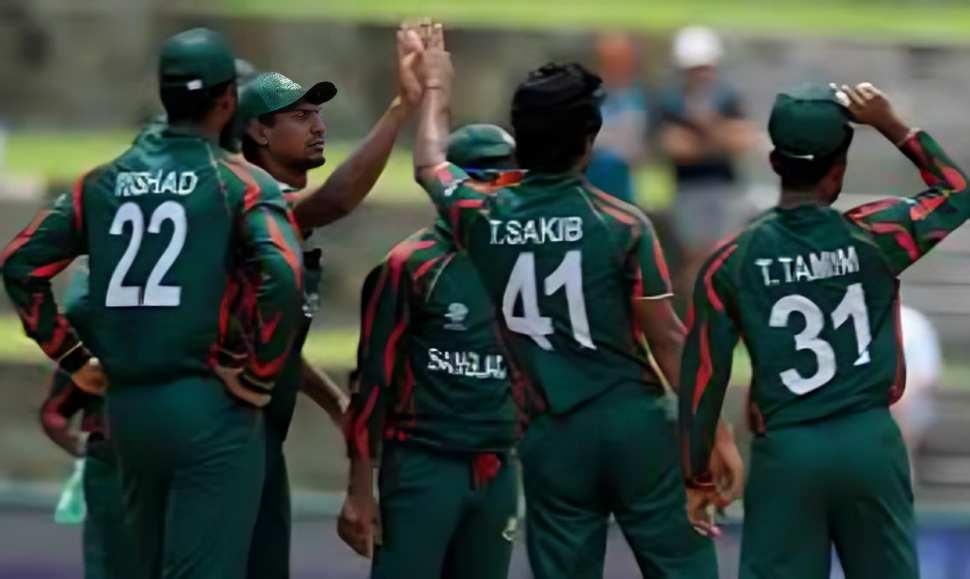The Bangladesh Cricket Board (BCB) must embrace ‘strategic thinking’ when scheduling tours for the High-Performance (HP) Unit and A team, which will yield long-term benefits, suggested outgoing BCB programme head David Moore.
Moore Stresses Strategic Planning for Bangladesh’s Cricket Tours

As Bangladesh prepares for a two-match Test series in Australia in 2027, David Moore emphasized the importance of strategic planning. Citing the High Performance (HP) Unit’s recent tour to Australia, he highlighted it as a purposeful step in preparing players for the challenges ahead.
“I think the strategic thinking is really important,” Moore said before departing for Bangladesh. His role includes planning, strategy development, and implementing the High Performance Unit and Bangladesh Tigers programmes for the BCB.
Moore organized the HP Unit’s tour to Australia with a clear goal: providing vital experience for players targeted for the 2027 Test series. “We’ve got to think strategically about how we plan our tours,” he noted.
The HP tour was followed by another strategic move—a planned A team tour to Darwin next year, designed to familiarize players with the conditions they will likely face during the Test matches. “Now the young guys who’ve come from HP have already played in Darwin on the wicket we’ll probably use for the Test matches,” Moore explained.
Creating an Integrated Cricket System
“You look at all the best nations, and they have a fully integrated program from the bottom to the top,” he said. Moore stressed the importance of communication and coordination, starting from Under-15 and Under-19 levels through HP and academy programs. “National selectors need to know what’s happening at every level,” he added.
Moore has suggested a decentralized cricket development model similar to Australia’s, where strong regional cricket systems play a vital role in grooming players for higher levels. According to Moore, this structure allows players to develop effectively within a competitive environment before advancing to national or international levels.
He emphasized the importance of the Bangladesh Cricket Board (BCB) making tough, merit-based decisions when selecting players for the High-Performance (HP) program and A team tours. Moore explained that players who don’t meet the criteria for these teams should focus on honing their skills through first-class cricket or domestic leagues such as the Dhaka Premier League (DPL) or the Bangladesh Premier League (BPL).
“First-class cricket provides an excellent platform for growth and development,” Moore said, underlining the significance of utilizing domestic cricket as a pathway for players to elevate their game. By adopting this model, Moore believes the BCB can create a more robust system that fosters talent and prepares players for the rigors of international cricket.
Challenges and Missed Opportunities
Moore acknowledged that external disruptions, such as student protests in July and national elections, hindered the progress of key initiatives. “Coach education stopped just when we were ready to launch with ICC partnerships,” he lamented.
Despite recent setbacks, Moore emphasized some notable achievements, particularly in establishing exchange programs with nations like Australia. He expressed optimism about these initiatives, stating, “The partnerships will remain, but we missed the chance to fully activate them.”
Moore highlighted that the groundwork for these programs has already been laid, creating opportunities for Bangladeshi players to gain valuable experience by training and competing in overseas conditions. Such partnerships are crucial for enhancing the skillset of players at the High-Performance (HP) and A Team levels, ultimately bridging the gap between domestic and international cricket.
However, Moore admitted that the full potential of these collaborations is yet to be realized. Challenges, including scheduling conflicts and logistical barriers, have hindered their progress. He stressed the importance of leveraging these partnerships effectively in the future, as they play a vital role in the long-term development of Bangladeshi cricket.
Looking ahead, Moore remains committed to strengthening these alliances and ensuring that Bangladeshi cricketers can fully benefit from exposure to higher standards of cricket. By addressing existing obstacles, the Bangladesh Cricket Board (BCB) can ensure these programs deliver on their promise and contribute significantly to the nation’s cricketing growth.
